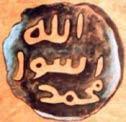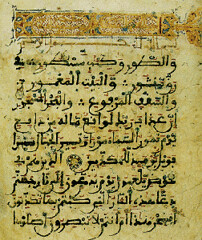who does Allaah love?
"Surely Allah loves the doers of good."
2. Surah Al-Baqarah : Ayah 222
"Surely Allah loves those who turn much (to Him), and He loves those who purify themselves."
3. Surah Aal-i-Imran : Ayah 76
"Indeed, whoever fulfills his promise and guards (against evil)-- then surely Allah loves those who guard (against evil)."
3. Surah Aal-i-Imran : Ayah 133-136
"And hasten to forgiveness from your Lord; and a Garden, the extent of which is (as) the heavens and the earth, it is prepared for those who guard (against evil). Those who spend (benevolently) in ease as well as in straitness, and those who restrain (their) anger and pardon men; and Allaah loves the doers of good (to others). And those who when they commit an indecency or do injustice to their souls remember Allaah and ask forgiveness for their faults-- and who forgives the faults but Allaah, and (who) do not knowingly persist in what they have done. (As for) these-- their reward is forgiveness from their Lord, and gardens beneath which rivers flow, to abide in them, and excellent is the reward of the laborers."
3. Surah Aal-i-Imran : Ayah 146
"And Allaah loves the patient."
3. Surah Aal-i-Imran : Ayah 148
"And Allaah loves those who do good (to others)."
5. Surah Al-Maidah : Ayah 42
"And if you judge, judge between them with equity; surely Allaah loves those who judge equitably."
5. Surah A l-Maidah : Ayah 54
"O you who believe! whoever from among you turns back from his Deen, then Allaah will bring a people, He shall love them and they shall love Him, lowly before the believers, mighty against the unbelievers, they shall strive hard in Allaah's way and shall not fear the censure of any censurer; this is Allaah's Face, He gives it to whom He pleases, and Allaah is Ample-giving, Knowing."
5. Surah Al-Maidah : Ayah 93]
"On those who believe and do good there is no blame for what they eat, when they are careful (of their duty) and believe and do good deeds, then they are careful (of their duty) and believe, then they are careful (of their duty) and do good (to others), and Allah loves those who do good (to others)."
9. Surah At-Tawba : Ayah 7
"Surely Allaah loves those who are careful (of their duty)."
9. Sura h At-Tawba : Ayah 108
"And Allaah loves those who purify themselves."
49. Su rah Al-Hujurat : Ayah
"And act equitably; surely Allaah loves those who act equitably."
60. Surah Al-M umtahana: Ayah 8
"Surely Allaah loves the doers of justice."
61. Surah As-Saff: Ayah 4
"Surely Allaah loves those who strive in His way in ranks as if they were a firm and compact wall."
Labels: reminders






![36_2_25[1]](http://static.flickr.com/53/152362417_eb6e804f5b_o.gif)